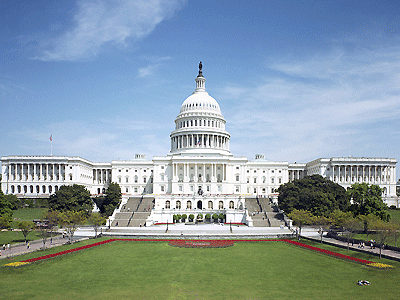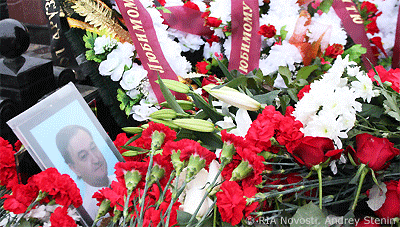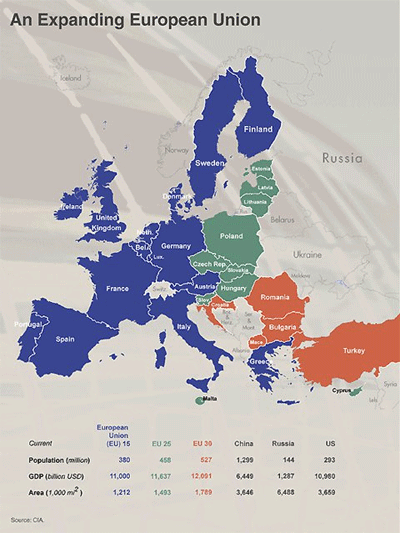As U.S. Acts on Magnitsky, Europe Debates

file photo
From the former head of a Moscow tax office accused of a $230 million fraud to the chief prison doctor who refused to see a dangerously ill man for more than two months, about 60 Russian officials face U.S. sanctions under the Magnitsky Act, which moved forward last week when it won the backing of a House of Representatives committee.
![]()
![]()

file photoThe bill, named after Sergei Magnitsky, the anti-corruption lawyer who died in jail after uncovering a massive tax fraud, may not be put to a final U.S. vote until the fall.
But to Moscow's consternation, it has garnered widespread support in Congress.
Europe's response has been more muted, much to Russia's delight.
This does not mean European lawmakers have been idle, though.
In June, the Parliamentary Assembly of the Organization for Security and Cooperation in Europe, which includes countries in Europe, North America and Central Asia, called on member governments to impose sanctions on those implicated in Magnitsky's death and to develop laws to protect whistle-blowers.
An overwhelming number of deputies voted for the measures, an OSCE spokesman said. Unsurprisingly, Russia and Belarus voted against.
In October, the European Parliament will vote on a motion for a pan-European visa ban and asset freezes targeting those implicated in Magnitsky's death, having already passed resolutions criticizing the Russian authorities' "inaction" on the Magnitsky case.
The talk sounds tough, but neither the OSCE assembly nor the European Parliament has the power to turn its proposals into laws.
Russian government officials might be irritated, but they don't sound worried.

file photoWhile the Foreign Ministry has fulminated against the U.S. bill and State Duma deputies have threatened tit-for-tat counter measures, officials sound breezy in the face of European action.
"I am sure that reason will prevail in the European Union. I have more confidence in the EU than I have in the U.S. Congress," Vladimir Chizov, Russia's ambassador to the European Union, told EU Observer in June.
Russia is well-aware of the European Union's struggles to forge a common foreign policy. When it comes to developing relations with China, Russia or Turkey, the EU is unable to take a strong line, said Nicu Popescu, senior policy fellow at the European Council on Foreign Relations, a think tank.
"The EU can find the middle ground, but when it comes to something like Magnitsky, this would be too far from the middle ground," Popescu said.
The 27-member bloc has often been out of tune when dealing with its biggest neighbor.
In Germany and Italy, warm relations have been cemented by energy links. The Baltics and Central European countries worry about human rights, although recent years have brought a rapprochement between Poland and Russia.
The difficulties in crafting a consensus on contentious subjects mean that Europe is less prone to grand gestures, preferring to work on technical issues.
"The whole European philosophy is very different to the U.S.," Popescu said. "Europe believes in engagement and trying to work on a positive agenda rather than package deals, as in the U.S."
Marek Henryk Migalski, a Polish Conservative member of the European Parliament who is a staunch advocate of a pan-European Magnitsky bill, put it more starkly.
"The U.S.A. has been founded on values of human rights. In Europe, the basis for the formation of states was realpolitik and a struggle for influence between states," he said, adding that Russia is an important economic partner for many countries.
Unsurprisingly given the geography, the economies of Russia and the EU are deeply interlinked. Russia is the EU's third-largest trading partner but only the 37th-largest for the United States.
"For the European Union, Russia is as important politically and economically as China is to the U.S.," said Ivan Krastev, chairman of the Centre for Liberal Strategies in Sofia, Bulgaria.
In general, European leaders "are not interested in symbolic policies. They will try to use social and economic pressure," Krastev said, citing talks on a visa-free regime as an example.
Nevertheless, supporters of a pan-European Magnitsky law are optimistic that the U.S. example will prod the EU into action.
"I think it would be very, very strange for [European] foreign ministers not to be in parallel with the U.S.," said Kristiina Ojuland, a Finnish Liberal lawmaker who co-wrote the European Parliament's recommendation on Magnitsky.
"We all know and understand that Russia is a very important partner for the European Union," she said. "But at the same time, we want to have a partner that shares the same values and respects the rules against corruption and which protects human rights."
Popescu has doubts about whether the EU's foreign ministers can agree, but he said a Magnitsky blacklist could happen by default.
Once an individual is barred from entering one of the 25 countries in the EU's Schengen border-free zone, he is barred from all of them, he said, noting that when Estonia banned the head of Nashi, Vasily Yakemenko, in 2007, the youth leader was effectively barred from much of Europe.
Britain, the largest country outside the Schengen zone, has already imposed a visa ban on 60 Russian officials, according to the OSCE parliamentary assembly report.
A spokesman at the British Embassy in Moscow declined to confirm this, in line with a policy of not commenting on individual cases.
"Where there is independent, reliable and credible evidence that an individual has committed human rights abuses, the individual will not normally be permitted to enter the U.K.," the spokesman said by e-mail.
Similarly, the reach of global finance means that any asset freezes imposed by U.S. authorities would also apply in Europe, Ojuland said.
When her recommendation reaches European foreign ministers in the fall, "there [will] not even [be] much to decide," she said.
Some lawmakers are unlikely to be satisfied if Europe gets a Magnitsky list by the backdoor.
Pieter Omtzigt, a Dutch Christian Democrat lawmaker, is pressing the Council of Europe to write a report on the Magnitsky affair.
He thinks such a step would help keep pressure on the Russian government to investigate the case properly, drop a posthumous conviction of Magnitsky and stop authorities from harassing Magnitsky's mother.
"These [reports] don't happen very often, and that could be very embarrassing for a nation," he said.
Although the report would have no binding power, the impact could be highly significant, he said, comparing it to a 2006 Council of Europe report that accused a dozen European countries of illegally detaining terrorist suspects, claims the countries denied.
Migalski, the Polish lawmaker, said he was convinced that an effective way of pressuring the Russian government to punish people guilty of Magnitsky's death would be to start discussing a boycott of the Winter Olympic Games in Sochi.
He also expressed hope that a recent effort to prioritize human rights in the EU's foreign policy would help the bloc take a tougher line.
Catherine Ashton, the EU's foreign policy chief, recently called for a stronger emphasis on human rights.
"We cannot forget human rights just because we are talking to governments about commercial relations or energy links," she wrote in an article for the European Council on Foreign Relations.
A spokeswoman for Ashton declined to say whether the EU high representative would support the pan-European Magnitsky blacklist.
In written comments, the spokeswoman said: "The EU was very disappointed to learn that the most recent deadline for completing the investigation, April 24, has passed (and been extended) once again without a conclusion being presented.
"The EU urges the Russian government to close this posthumous prosecution and to bring the case of Mr. Magnitsky's death in pre-trial detention to a credible and thorough conclusion as soon as possible."
EU foreign policy toward Russia is evolving, Krastev said. This is partly due to changes in leadership in EU countries, he said.
The resignation of Italy's Silvio Berlusconi, arguably President Vladimir Putin's best friend among European leaders, makes a difference, considering that the EU's big countries carry so much weight in setting foreign policy.
Changes in the EU's thinking are also a result of the increasingly anti-Western tone of the Russian government, manifest in the "foreign agents" NGO law.
Yet Krastev added a reality check.
"The truth is that especially after Putin's re-election, European leverage over Russian policy is declining," he said. "The economic crisis is not making the European Union stronger or more united with respect to Russia."
Keywords: Russia, Assassinations, Beatings, Prison Deaths - U.S.-Russian Relations - Russia, Europe - Russian News - Russia - Johnson's Russia List

